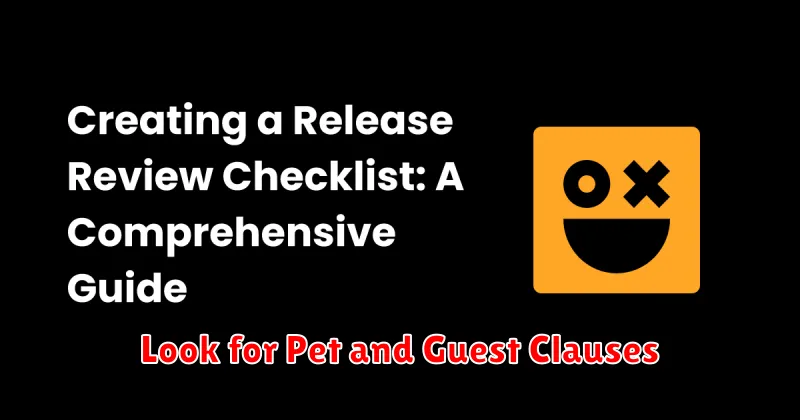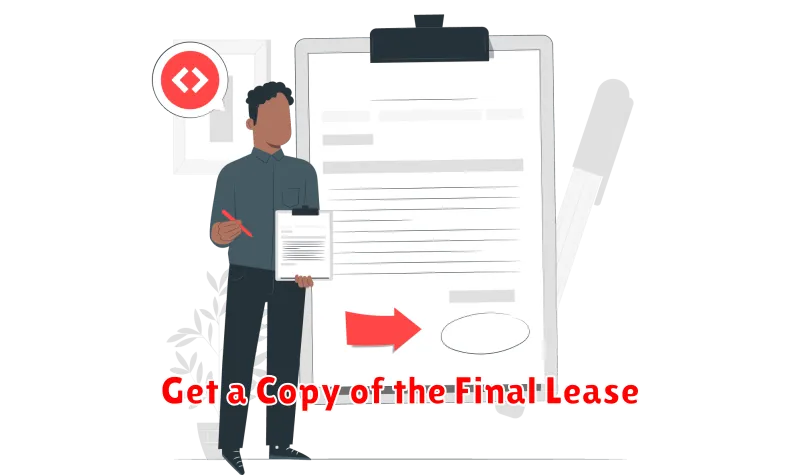Signing a lease is a significant commitment. Before you rent an apartment, house, or any property, a thorough lease review is essential. Understanding the terms and conditions outlined in your lease can save you from future headaches, disputes, and unexpected expenses. This guide on how to review a lease before renting will provide you with the critical knowledge needed to confidently navigate this important document. We will cover key aspects like rent, lease duration, security deposits, maintenance responsibilities, and more, empowering you to make an informed decision and protect your rights as a tenant.
Renting a property involves a legally binding agreement, and the lease is your roadmap for the tenancy. A careful lease review before renting allows you to fully comprehend your obligations and the landlord’s responsibilities. From understanding pet policies and parking regulations to deciphering clauses about early termination and subletting, this guide will help you dissect the complexities of a lease. By taking the time to review the lease before renting, you are taking a proactive step towards a positive and stress-free rental experience. Don’t just skim it; truly understand it. This article will equip you with the necessary tools to do just that.
Identify the Lease Term
A lease term specifies the duration of your tenancy. It’s crucial to understand the start and end dates of your lease. This information dictates how long you are legally bound to the terms of the agreement and how much notice you need to provide before moving out.
A fixed-term lease lasts for a specific period, usually six months or a year. After the term expires, the lease either converts to a month-to-month agreement or requires renewal with a new lease agreement. A month-to-month lease automatically renews each month until either the landlord or tenant provides proper notice of termination.
Carefully review the length of the term and decide if it suits your needs. A shorter term provides flexibility, while a longer term offers stability. Consider your future plans and choose a lease term that aligns with them.
Check Rent Due Dates
The lease should clearly state the due date for rent payment each month. Confirm this date works with your personal finances. Some leases may offer a grace period, typically a few days after the due date, before late fees are applied.
Pay close attention to the consequences of late rent payments. The lease will specify the amount of the late fee and any other penalties. Understanding these terms is crucial to avoid financial difficulties.
Also, note the accepted methods of payment. Does the landlord prefer checks, online transfers, or another method? Clarify this upfront to ensure smooth and timely payments.
Understand Security Deposit Terms
The security deposit is a crucial aspect of your lease. It protects the landlord against potential damages or unpaid rent. Carefully review the terms outlining the deposit amount, which is often equivalent to one or two months’ rent.
Pay close attention to the conditions under which the landlord can withhold portions or the entire security deposit. These typically include unpaid rent, damage beyond normal wear and tear, and breach of the lease agreement.
The lease should also specify how and when the security deposit will be returned after you vacate the premises. Ensure the timeframe and procedures for its return are clearly stated.
Look for Pet and Guest Clauses

Before signing a lease, carefully review any clauses related to pets and guests. Pet clauses often stipulate acceptable breeds, size restrictions, or additional pet deposits. If you have or plan to have a pet, ensure the lease aligns with your needs. Not disclosing a pet could lead to complications or even eviction.
Guest clauses outline rules regarding overnight guests and extended stays. Pay attention to any restrictions on the number of consecutive days or the total number of days a guest can stay. Understanding these limitations is crucial for avoiding potential lease violations.
Read Maintenance Responsibilities
A crucial aspect of any lease agreement is understanding who is responsible for what maintenance tasks. Carefully review the section outlining maintenance responsibilities. This section dictates who is financially responsible for repairs and upkeep.
Typically, landlords are responsible for structural issues, such as roof repairs or plumbing problems. Tenants are often responsible for minor maintenance like changing light bulbs or keeping the unit clean. Look for specific details regarding appliance repair, pest control, and landscaping.
Understanding these responsibilities upfront can prevent future disputes and unexpected expenses. Knowing what you’re responsible for allows you to budget accordingly and avoid potential conflict with your landlord.
Check Termination Policies
Carefully review the lease termination clause. Understand the conditions under which you or the landlord can terminate the lease early.
Look for details regarding required notice periods, associated fees, and specific circumstances like job relocation or military deployment. Knowing these details upfront can prevent costly surprises later.
Note Rules on Modifications
Before making any changes to the property, carefully review the lease agreement for clauses regarding modifications. Most leases restrict alterations without the landlord’s prior written consent.
Pay close attention to rules about painting, installing fixtures, or making structural changes. Unauthorized modifications could lead to penalties, forfeiture of your security deposit, or even eviction. If allowed, ensure any agreed-upon changes are documented in writing to avoid disputes later.
Clarify Payment Methods
Thoroughly review the lease agreement for accepted payment methods. Landlords may specify options such as checks, online transfers, or money orders. Confirm whether cash payments are accepted and if so, how receipts are provided. This clarity helps avoid future disputes.
Understand any associated fees for using particular payment methods. Some landlords may charge extra for online transactions or late payments. Determine the payment due date and any grace period allowed. Being aware of these details prevents unexpected charges and potential late fees.
Ask Questions Before Signing
Once you’ve thoroughly reviewed the lease, don’t hesitate to ask the landlord or property manager any questions you may have. Clarification is crucial before making a commitment.
Key areas to inquire about include:
- Lease Term and Renewal Options
- Pet Policies and Associated Fees
- Maintenance Responsibilities (both landlord and tenant)
- Utilities (which are included, and which are the tenant’s responsibility)
- Procedure for Addressing Repairs and Maintenance Issues
Getting these questions answered upfront can prevent future misunderstandings and disputes.
Get a Copy of the Final Lease

Before signing, ensure you receive a complete and final copy of the lease agreement. This copy should reflect any negotiated changes or amendments discussed with the landlord.
Carefully review every clause and provision. Do not rely on verbal agreements. Everything agreed upon must be documented within the lease.
Having the final lease in hand allows you adequate time to scrutinize the document before committing. This is your last chance to clarify any remaining questions or concerns with the landlord.

